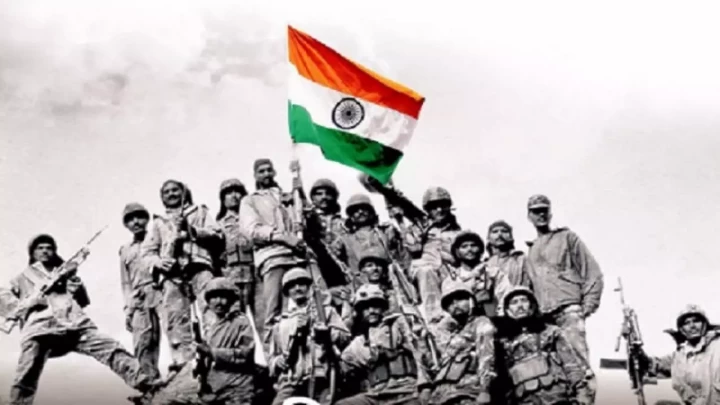
The Real Story Behind Vijay Diwas, Dec 16th 1971

This is a tribute to the thousands of souls who lost their lives, to the thousands of bodies that got injured, and to the countless family members and friends who suffered in this rough phase.
On 16th December 1971, Lieutenant General Amir Abdullah Khan Niazi, CO of Pakistan Armed Forces, signed the Instrument of Surrender. On that day, over 92,000 West Pakistani soldiers, sailors, airmen, paramilitary personnel, police officers, and civilians surrendered to India in East Pakistan (now Bangladesh) after 13 days of the war.
Since then, every year, 16th December has been celebrated as Vijay Diwas to commemorate India’s victory over Pakistan in 1971.
This war was triggered when East Pakistan rebelled against the Islamabad Government because the Pakistani forces committed atrocities on the Bengalis and minority Hindu population. Former Prime Minister Indira Gandhi then decided to support and refuge people who fled from East Pakistan.
The war began when Pakistan launched airstrikes on 11 Indian airbases on 3rd December 1971. For the first time, perhaps, all three forces of India fought in unison.
During the war, every soldier fought relentlessly and contributed to victory but, this victory came at a huge price. Thousands of soldiers in both countries lost their lives, and thousands were injured. Their families, too, suffered the wrath of the war. Many parents lost their sons, many wives lost their husbands, and many kids lost their fathers. Many of the family members were held as prisoners. The country was under immense financial pressure because millions of East Pakistanis were taking refuge in our country. There was a threat to life all over. Many lost their homes and properties. There were a lot of difficulties, yet, our forces fought valiantly, and in less than a fortnight, the war was over. It’s a victory day! The country rejoiced again!
The aftermath of the war resulted in the birth of Bangla Desh (which was then reduced to one word). This day is also observed as ‘Bijoy Dibos’, marking the country’s freedom from the Pakistani Government.